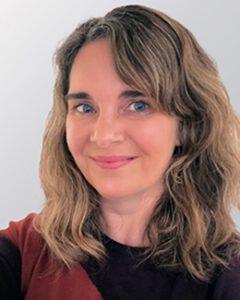IDEAS
Learning Forward Academy: 30 years of educator learning and growth
By Jefna M. Cohen
Categories: Career pathways, Continuous improvement, Leadership, Learning communitiesDecember 2023
For three decades, the Learning Forward Academy has supported education leaders working to improve their schools and systems through a multiyear deep dive into professional learning. Since its inception, the academy has inspired and enhanced the professional learning work of more than 1,600 educators, and they serve as a testament to the power of standards-based, aligned educator learning.
The academy is a unique learning experience because of its intensive, cohort-based model and its focus on transforming organizations to improve results for all students. Graduates credit the academy with expanding their thinking about what effective professional learning looks like, giving them practical tools to make changes, and facilitating lifelong collaboration with other learning professionals.
As the academy celebrates its 30th anniversary, Shannon Bogle, Learning Forward’s director of networks and academy and a graduate of the class of 2019, reflected on what the academy has meant for educators and students. “After COVID, it became even more clear how important this work is. It’s exciting to see these leaders take their tools to improve school systems so they work the best they can for kids. I have witnessed the concrete results in the data — they are already making a substantial impact.”
🎓The Learning Forward Academy marks 30 years of transformative impact in education leadership. Over 1,600 educators 🤝 have honed their skills in this cohort-based program that enhances PL practices & fosters change in schools.… Click To TweetThe program
Participating in the 2½-year academy is a commitment to growing one’s professional learning practice. Members use and fine-tune the skills, tools, and methods needed to initiate changes that benefit students. The in-depth learning experience includes five live convenings totaling 10 in-person days, along with four virtual events and ongoing video and phone meetings that link together ongoing program work.
Every July, new cohort members join educators from around the world to immerse themselves in evidence-based professional learning designed to examine their systems and uncover the roots of the challenges that exist within them. They are led and supported by two experienced coaches — previous academy graduates who have successfully led system change.
These experts in professional learning and facilitation challenge cohort members to stretch their thinking and improve their practice. Participants study researched-based strategies that lead them to solutions to their problems of practice. Equity-centered professional learning threads throughout the work.
Academy participation also includes Learning Forward membership for the program duration and registration for three of Learning Forward’s Annual Conferences, which take place in early December. In addition, participants have access to Learning Forward’s Standards Assessment Inventory, a web-based data collection tool for analyzing professional learning in schools and systems.
As is the case with all of Learning Forward’s endeavors, the academy work is anchored in the Standards for Professional Learning and incorporates evidence from the latest relevant educational research and practice. “The academy helped me ground my work in the standards, making sure we were using them in the development of our [district professional learning] sessions and coursework for people,” said Nikki Mouton, deputy superintendent of academic services for Gwinnett County Public Schools in Georgia. Mouton is an academy graduate who has also served as a coach.
The connection to the standards also stands out to Dawn Wilson, a 2010 graduate and academy coach and mentor. “The most significant learning was about how the Standards for Professional Learning are foundational to best professional learning practices. The standards provide the lens through which to view all professional learning and serve as a framework to inform areas of strength as well as improvement.”
Individualized professional learning
The centerpiece of the academy is the problem of practice. Each member identifies and defines a problem of practice specific to their educational system. Schools’ challenges and solutions are rarely one-size-fits-all and require ongoing reflection and refinement based on real-world outcomes and feedback.
By acknowledging this, the academy creates an opportunity for personalized, contextual learning while teaching members about methods and processes for facilitating change management that can be used in many settings and situations.
In small teams, academy members work on their problems of practice in ways that are both collaborative and individualized. They benefit from each other’s insights and experiences as they shape and assess their own strategies.
Looking back on these experiences, Mouton said she appreciated the opportunity “to connect with other people in similar roles and similar problems of practice.” She said it was helpful to grapple with the work among different small groups to get a variety of perspectives. Connecting on similar problems of practice is beneficial for comparing similar themes and leveraging discoveries that others may find useful, she said.
Ayesha Farag, superintendent for elementary education in Newton Public Schools in Massachusetts and a 2021 academy graduate, is working on a problem of practice around coherence between district departments. “There were siloed activities between the elementary school principals, the office of teaching and learning with the curriculum coordinators, and the office of student services with the special education administrators,” she said.
Farag’s academy work inspired her to find solutions for district alignment. “If these three departments were to work together and strengthen the relationships and calibrate around instructional expectations, we would be able to better align our efforts,” she said. The result would be more cohesive professional learning and greater support for teachers as well as improved outcomes for students, she said.
Miladys Cepero-Perez said she also appreciated that personalized approach. Cepero-Perez, an instructional supervisor for Miami-Dade County Public Schools, is a member of the class of 2024 and a recipient of the Stephanie Hirsh Scholarship, one of the awards funded by the Learning Forward Foundation that make the academy financially accessible to participants. Cepero-Perez said that the Learning Forward Academy “has instilled in me the practice of conducting needs assessments. This aligns with the personalized learning approach, ensuring that professional learning is tailored to the specific needs and challenges within my district.”
Impacting systems
Joe McFarland, who has served as a coach for two academy cohorts, believes wholeheartedly in the academy’s in-depth approach. He experienced the many ways it benefited his Pennsylvania district when he was a member of the class of 2015, and he continues to see benefits for the educators he has coached. “In my entire 33 years [in education], I have not had any kind of learning that was as impactful to my practice and to system change as academy work,” McFarland said.
When he enrolled in the academy, McFarland was working at the district level as the assistant to the superintendent for curriculum and instruction. He was part of a district team that enrolled in the academy together, including a principal at each school level, as well as a district director.
While each staff member had a different problem of practice, they all connected to a common area of focus for the goal of enacting systemic change. What was once disjointed professional learning that went along with “whatever was coming down the pike,” McFarland said, became coherent and aligned as a result of the team’s academy work.
McFarland became superintendent after his first year in the academy and refocused his problem of practice to center on the school board, with whom he worked closely. “My goal was to help the board understand the importance of investing in sustainable, ongoing professional learning through the role of instructional coaches and the impact that they make on the instruction that happens in the classroom.”
As a result, his district added coaches to every school level. Although McFarland has since left the district, the coaching program continues under the current superintendent, who was also a member of the academy.
Mouton continues to see the impact of the methods and resources she acquired and used in her academy work, both as a participant and as a coach. She relies on those tools today as she supports her district’s implementation of a new reading program in a move from balanced literacy to structured literacy. For the largest district in Georgia, “the change management for that is huge,” she said, and she is grateful for tools like the Concerns-Based Adoption Model, a framework of techniques to assess and facilitate the steps of reform.
Farag, the elementary superintendent from Massachusetts, says the academy has helped her think critically and intentionally about how she supports the 15 principals she supervises. “It has to be me looking at my own practices and how I provide the structure, support, and guidance to produce [more than] just a pleasant learning experience,” she said.
Farag says she has also become much more focused on how the professional learning is leading to meaningful changes, and she acknowledges that work is more complex than measuring participants’ satisfaction. “That’s the piece that I feel like I’ve really become much more focused on through work in the academy.”
Professional network and community
For many academy members, the impacts of the academy continue to be felt in the long term because of the network and community they develop, which can last for years. Their cohorts become trusted colleagues, a support system, and a sounding board. Coach Dawn Wilson says, “Professional learning is a big door … and it swings on the hinges of relationships and engagement.” Throughout Wilson’s long academy history, she has seen the academy grease those hinges often.
Some members from the earliest academy cohorts still meet on their own, says Joellen Killion, a Learning Forward senior consultant. Killion has participated in or led in every academy except one. Killion’s leadership has been an essential element in the evolution of the academy’s curriculum.
She spends a half-day with each cohort, focusing primarily on elements of her text, Assessing Impact (Corwin, 2017), which equips participants with the essential tools to construct comprehensive evaluation plans and assess the impact on educators and students. Killion supports and offers continuous coaching to academy staff, demonstrating her unwavering commitment and dedication to the academy’s success.
The importance of these relationships is a common refrain among those who have been part of the academy over the past 30 years. “There’s something about collaborating with people from around the country, speaking with professionals in similar roles to compare work and problems and having the freedom to share about tough stuff. You can have those conversations in a safe space,” said Kristin Buehrig, Learning Forward vice president of conference programs and a former Learning Forward Academy director. She said she continues to use her experience and learning from the academy in her current role.
Investing in personal and professional growth
Farag, who is a recipient of the Stephanie Hirsh Scholarship, credits the academy with stretching her thinking and energizing her with an infusion of new ideas and resources. She said that she “cannot underestimate the importance of dedicated time and support to break from the demands of the day-to-day to provide deliberate attention to my own learning, growth, analysis, and reflection.”
For academy member Cepero-Perez, the experience has been deeply satisfying on a personal level and is helping her pay forward the contributions other educators have made to her path. “I want to contribute to the profession and leave a legacy,” she says, through designing professional learning that is high-quality, embedded in teacher work, and actionable in school.
“I have been able to achieve that through the Learning Forward Academy,” Cepero-Perez says. “When people talk about the programs that I lead with my team, they smile. They really want to participate because they see meaning in the work that we’re doing.”
Academy applications and scholarships
Visit learningforward.org/academy to learn more about the Learning Forward Academy and scholarships available. Applications for the 2026 cohort are due March 15.
Download pdf here.
🌟Graduates of the Learning Forward Academy share how this intensive program redefines professional learning and drives system-wide improvements. https://bit.ly/3vnAr4k. 🚀 #EdLeaders #TheLearningPro Click To TweetLearning Forward academy program components
Understand the system, plan, and prioritize action. Each academy member identifies a specific challenge within their school or district that focuses on the instructional core, is observable, connects to a broader improvement strategy, and directly impacts student outcomes. Educators analyze data from their system, including results of the Standards Assessment Inventory.
Then participants learn about root cause analysis, the process of looking deeply at the factors causing educational challenges, as well as the tools and processes for developing effective, sustainable solutions. Members hone their focus on a problem of practice that must center and benefit students. Examples include implementing specific teaching methods, increasing student performance, and improving school culture.
Measure changes and use evaluation frameworks. Members learn to use an evaluation framework to measure progress toward their goals and problem of practice in a way that is aligned with the overall vision for their district’s improvement plan. They learn about measuring changes in multiple areas that contribute to increasing student achievement. One of the models used to define outcomes examines educators’ knowledge, attitude, skills, aspirations, and behavior, also known as KASAB.
Execute and support the plan. Academy members refine their evaluation framework and explore potential solutions and strategies centered in professional learning to address the identified problem. This step may involve researching best practices, learning from other districts, and considering innovative approaches. Then they develop a theory of change, which is a structure for the strategies, actions, conditions, and resources needed to facilitate the desired improvements.
Analyze data and share findings. Participants craft evaluation plans aimed at gauging the effectiveness of their initiatives. Following the implementation phase and data collection, an intricate data analysis guides them in discerning opportunities to broaden the reach of their efforts. The academy places great importance on empowering educators to champion their work. Gathering data, disseminating their findings, and showcasing the positive impact on educators and students all play pivotal roles in advocating for continued funding and support for professional learning.
Celebrate graduation and plan next steps. At participants’ third Learning Forward Annual Conference, they celebrate and acknowledge their hard work at a graduation ceremony. Educators reflect on their learning experiences and change management processes and share what they’ve learned with the wider Learning Forward community.

Jefna M. Cohen is associate editor at Learning Forward.
Categories: Career pathways, Continuous improvement, Leadership, Learning communities
Recent Issues
EVALUATING PROFESSIONAL LEARNING
February 2024
How do you know your professional learning is working? This issue digs...
TAKING THE NEXT STEP
December 2023
Professional learning can open up new roles and challenges and help...
REACHING ALL LEARNERS
October 2023
Both special education and general education teachers need support to help...
THE TIME DILEMMA
August 2023
Prioritizing professional learning time is an investment in educators and...











